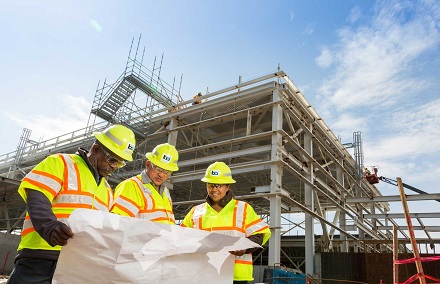In the dynamic world of construction, global construction companies play a pivotal role in shaping the infrastructure landscape. International construction services have become indispensable for governments and private entities alike. However, embarking on international construction projects is not without its hurdles and complexities. In this blog post, we will explore the challenges that stakeholders face when engaging with global construction companies in the realm of government construction.
Understanding the Global Construction Landscape
International construction services are a cornerstone of global development. These services are offered by specialized global construction companies that possess the expertise and resources to tackle complex projects worldwide. However, before diving into the challenges, it’s essential to understand the diverse landscape these companies operate in.
Global construction companies operate across continents, adapting to local regulations, cultures, and construction norms. They provide a wide range of services, from infrastructure development to commercial construction, and are often key players in government construction projects.
1. Regulatory Compliance and Local Laws
One of the primary challenges faced by global construction companies is navigating the intricate web of regulations and local laws in various countries. Government construction projects require strict adherence to regional laws, which can significantly differ from one location to another. These differences can pose compliance challenges, affecting project timelines and budgets.
To mitigate this, international construction services providers employ legal experts and local consultants who are well-versed in the intricacies of each region’s regulatory framework. This ensures that government construction projects proceed smoothly while staying in compliance with local laws.
2. Cultural Sensitivity and Communication
Effective communication is the linchpin of success in international construction projects. Language barriers and cultural differences can lead to misunderstandings, which, in turn, can result in costly delays and disputes.
Global construction companies must prioritize cultural sensitivity and foster effective communication among project stakeholders. This often involves hiring bilingual staff and implementing clear communication protocols to bridge language gaps and cultural divides.
3. Supply Chain Management
Efficient supply chain management is crucial for international construction projects. Sourcing materials, equipment, and labor can be a complex endeavor, especially when dealing with government construction projects in remote or unfamiliar regions.
Global construction companies leverage their extensive networks and logistical expertise to streamline the supply chain. This includes sourcing locally where possible, optimizing transportation routes, and ensuring a consistent flow of materials to the construction site.
4. Project Financing and Currency Fluctuations
Financing international construction projects can be a complex undertaking, particularly when dealing with government contracts. Currency fluctuations, economic instability, and financing challenges can affect project viability.
To address this, global construction companies often work with financial experts who specialize in international transactions. They employ strategies to hedge against currency risks and secure project financing that is resilient to economic fluctuations.
5. Quality Control and Standards
Maintaining consistent quality standards across diverse regions can be challenging. Government construction projects require strict adherence to quality and safety regulations, and any deviation can result in project setbacks and reputational damage.
Global construction companies combat this challenge by implementing rigorous quality control measures and adhering to internationally recognized construction standards. They invest in training and development programs to ensure that their teams are equipped to uphold these standards on a global scale.
6. Security and Political Risks
International construction projects can expose companies to security and political risks that are not present in domestic projects. These risks can range from civil unrest to changes in government policies and regulations.
Global construction companies develop comprehensive risk management strategies that include security assessments, contingency plans, and political risk insurance to safeguard their investments and personnel.
7. Environmental and Sustainability Considerations
In an era of increasing environmental awareness, international construction projects must adhere to sustainability and environmental regulations. Balancing economic development with environmental preservation is a challenge that requires innovative solutions.
Global construction companies are at the forefront of adopting sustainable practices, and integrating eco-friendly materials and construction methods into their projects. They often collaborate with local environmental organizations to ensure responsible construction practices.
In conclusion, while international construction services offered by global construction companies are indispensable for government construction projects, they come with a unique set of challenges. Navigating the regulatory, cultural, and logistical complexities requires a strategic and adaptable approach. By addressing these challenges proactively and embracing best practices, stakeholders can ensure the successful execution of international construction projects in a dynamic global landscape.
